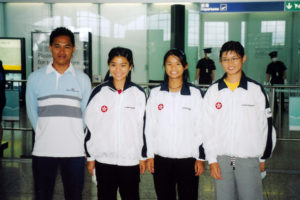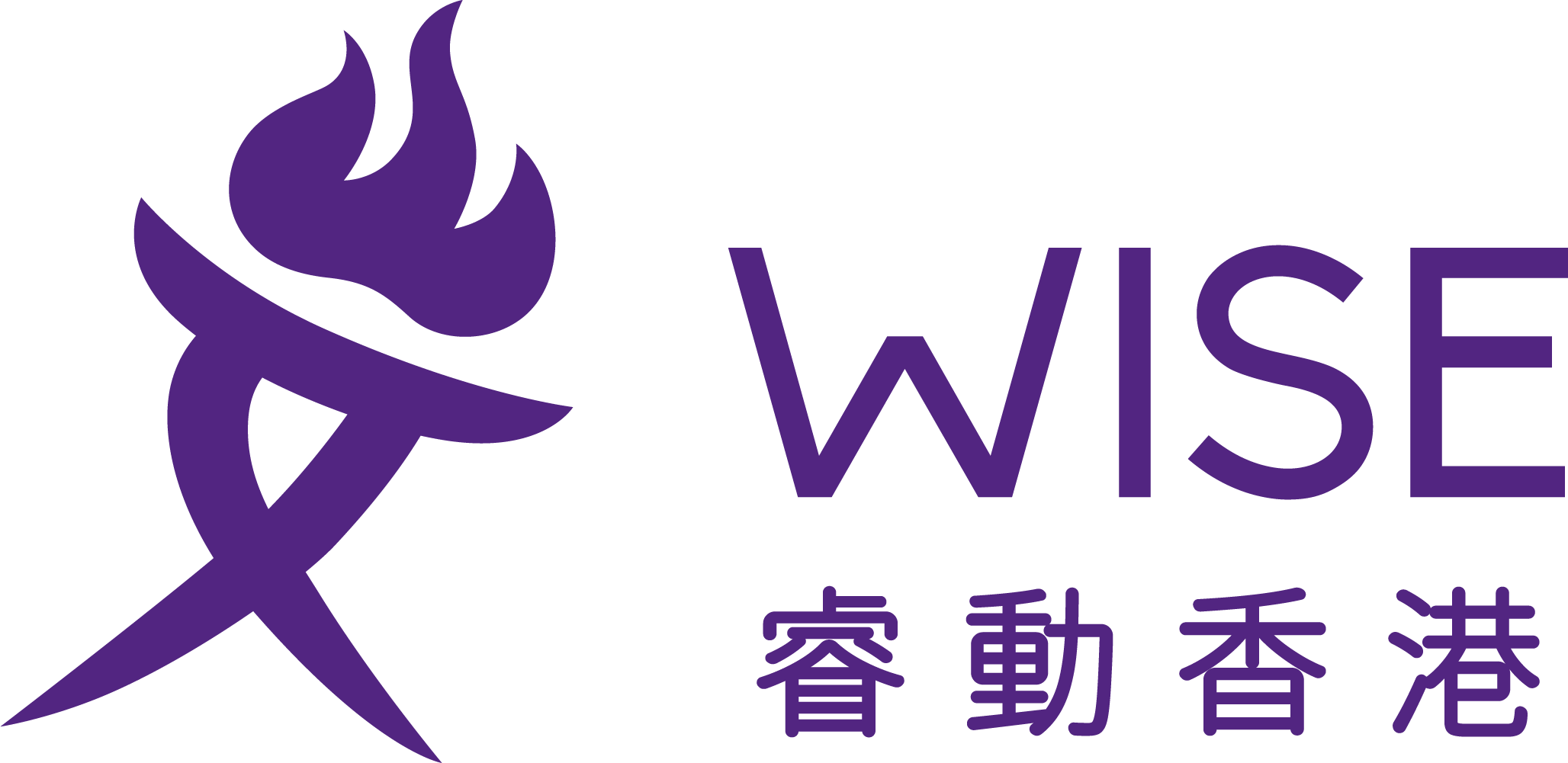Melda Tsang — tennis player and Strategy & Projects Director at adidas — on gender and leadership

Sports have always been part of Melda’s life. She started playing tennis at five. At the age of ten, she started representing Hong Kong including the Junior Fed Cup – which is considered the highest level world junior team tournament.
Melda has always been clear about her goals. Although she wanted to excel in both tennis and studies, she chose the latter. Setting aside formal training, Melda went on to read a double degree in Law and Business at the University of Hong Kong (HKU), balancing her studies whilst playing for the university tennis team as captain.
After a stint at the Boston Consulting Group (BCG) as a management consultant, she joined adidas as Director in Strategy & Programs. Sports is still a big part of Melda’s life – she plays at the A+ division league for Hong Kong Cricket Club and is an avid hiker completing the 100KM Oxfam Trailwalker last year.

How had playing sports helped you transition from student and athlete to a working professional?
My first job as a management consultant was tough. Hours can go up to 100+ hours a week, new topics come up every day, and I had to deal with C-suite executives even though I was very junior.
I do believe tennis had helped me a lot in the transition in two ways: understanding the power of a strong mind, and handling failures.
In tennis, skills don’t differ much at the top. You win with your mind. You also have to play completely solo – it’s one of the few sports that you have no teammates AND no coaching at all in matches. Stress was intense. It wasn’t easy when I was young. I was emotional, I even broke rackets and was too ashamed to tell my sponsor. But as I gained experience, I learned to keep myself together and stay calm, that’s the only way to win. Same at the workplace, I know I have to hold myself together.
Tennis also taught me failures are fine, after all, there’s only one champion. It’s completely fine as long as you learn from it. I’m glad I learnt this at a young age. At my first job of course I made mistakes and I had a lot to learn, I remember being teased about not knowing any excel formula at all when I just started, but I know it is fine as long as I put my mind to it and learn from it.

Have you ever felt that you’ve faced barriers or challenges at work? If so, what are they?
Of course there are always challenges. I was promoted to my current position as Director not too long ago. I’m probably relatively young, and still quite new to adidas. So I knew it will be an exciting challenge.
However, I believe in myself and I’m not afraid to try and learn. It goes back to my tennis experience – I knew I can’t be perfect every time, but as long as I learn it’d be okay.
How do you think playing sports helped you in your career?
For one, I believe perseverance is key. I did the 100KM Trailwalker last year. My knees hurt from 60KM onwards, Panadol didn’t work to kill the pain and I was hiking in tears basically. But I just pushed it through for the next 40KM and made the finish line with my team. Same goes for work, I know if I persevere long and hard enough, I will achieve what I want.
Discipline also helped. I led a very “military” life when I was young. On most days, I go to school, rush to Hong Kong Sports Institute, finish my homework in 1-2 hours, practice 2-3 hours, sleep, repeat. There was little leisure, no cartoons no playtime. But the discipline helped me with managing different priorities now in my career.
Lastly I think tennis at a young age made me more mature. My first tennis trip was to China at age 10. China was still very backward in those days. Not only did I have to handle the tournaments and trainings, but also my personal life as my parents were not with me. The most memorable thing was actually laundry. There was no washing machine and there were a couple sets of clothes to wash every day given the tennis schedule. We had to wash by hand in very smelly toilets. These experiences all taught me to be very independent from a young age.
Most of my fellow tennis peers have very successful careers now – I do believe sports did play a very significant role in helping us with our careers.

Did you ever want to give up playing tennis? How did you persevere and apply the lessons learned in the workplace?
Quitting tennis was a constant dilemma in my teenage. It was very tough to juggle both competitive tennis and studying, especially I was aiming pretty high academically. In most countries, tennis players play professionally and study part-time but I did it the other way round.
Being clear about my goals and constantly reminding myself of them helped. It takes conscious effort and balancing is key. Some days I doubted myself when I didn’t get the best results in either tennis or studies, but I reminded myself I want to do reasonably well in both, I didn’t need to be #1 in both, that would not be possible.
Taking it to the workplace, I make sure I am clear what I want and need. I left management consulting in part because I wanted to have more balance in my life. I had no ambitions for example to be a partner at a consulting firm where you don’t get too much of a personal life anymore. I enjoy doing what I do at adidas, but I can also have a life outside of work so my role now gives me the ability to achieve balance. The important thing is having clarity over what works and doesn’t work for me.
What has playing sports taught you about leadership?
It taught me leaders are probably more enablers or supporters rather than literally leading.
I reflect on the coaches I had. Some were directive and force me to change strokes to this and that, some were always scolding us day and night and some gave us a lot of rules like how many bottles of non-water beverages we can have every day. But I do feel coaches who listened, had fun and supportive actually made a better impact. They feel like a partner, they adapt their styles to each of us, and they wanted us to succeed.
Of course I am still learning, but this is something I keep reminding myself of.
The other thing is to learn that no two people are the same. This forehand stroke may work for her but not me. I can’t force it on people. People are faced with many things we don’t necessarily see and know, and there’s no one right way. I try to learn to adapt as much as I can.
Lastly – on being a woman and leadership. Sports taught me gender only goes as far as defining physical differences. In tennis, boys and girls do the same drills. Coaches expect the same mental toughness. Of course, boys are stronger and faster on courts, but in the workplace that doesn’t matter. I would never let the gender label make me shy away from any opportunities.

Do you have any words of advice or encouragement if women feel “stuck” in their careers?
I want to go back to three concepts I had been mentioning: balance, perseverance and gender.
Balance is key. We can’t be #1 in everything. Just know what we want first and be realistic. Once the balance looks manageable, then just persevere. It’s all in the mind. Talent only plays a small role. If you want it bad enough, you will get it somehow, it’s just a matter of time.
Lastly, gender defines physical traits, but that’s pretty much it. Don’t ever let the label of gender (or any other label) define who you want to and can be. Take that out of the equation.
